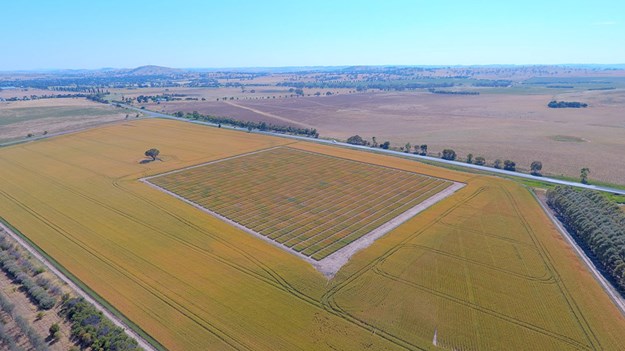Drones, remote monitoring and advanced data analytics will form a centrepiece of the crop research to be conducted at a new CSIRO research facility in southwestern New South Wales.
Developing cropping varieties able to withstand a drought will be the focus of researchers at a new facility in Boorawa, the Commonwealth Scientific and Industrial Research Organisation (CSIRO) says.
The 290 hectare Boorowa Agriculture Research Station cost $11.5 million to develop and four years to design and build.
The station is equipped with 100 temperature and humidity probes, 72 soil moisture probes, and six weather stations to monitor experiments in crop science, agronomy and farming systems – all features CSIRO says will give scientists unprecedented accuracy in studying crops.
Director of CSIRO Agriculture and Food Dr Michiel van Lookeren Campagne says scientific research to build resilient agriculture systems and increase food production is more important than ever, particularly given current drought conditions in NSW.
“Here at Boorowa, we’ll be trialling new varieties of wheat, canola, legumes and pastures that can withstand warmer and drier conditions, such as those predicted for the future,” he says.
“We’ll also continue to research the best farming practices to manage our fragile soils and get the most from every drop of water.”
The new research station replaces CSIRO’s Ginninderra Experimental Station, which was established just outside Canberra in 1958.
“It was at Ginninderra that we field-tested a range of high yielding and disease resistant wheat varieties such as Lawson, Paterson, Gordon, Tennant, Brennan and Dennis,” van Lookeren Campagne says.
“We also refined our high-fibre Barleymax and ultra-low gluten Kebari barley… With this new state-of-the-art facility at Boorowa, it’s exciting to imagine what we can achieve.”
 |
|
At Boorowa, research will be conducted into new varieties of wheat, canola, legumes and pastures that can withstand warmer and drier conditions, such as those predicted for the future.
|


